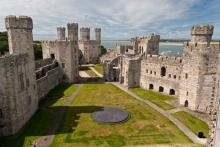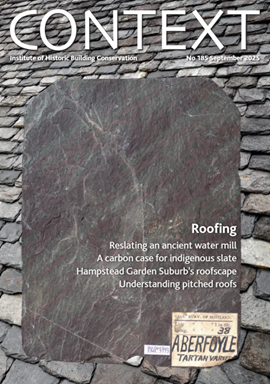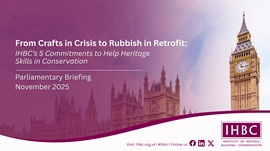Historic buildings definition
Approved document E: Resistance to the passage of sound, defines ‘historic buildings’ as:
- Listed buildings.
- Buildings situated in conservation areas.
- Buildings which are of architectural and historical interest and which are referred to as a material consideration in a local authority’s development plan.
- Buildings of architectural and historical interest within national parks, areas of outstanding natural beauty, and world heritage sites.
- Vernacular buildings of traditional form and construction.
An historic building is generally considered to be a building or structure that has some kind of 'historic value', i.e. people in the present are connected to it via past events in some way. This value warrants it being afforded consideration in planning decisions that have to be made concerning it.
A building may hold special historic interest because of its importance with respect to a particular historical event or period, or be associated with nationally important people. Alternatively, there might be special historic interest in the building itself, i.e. its construction methods, design, architectural significance, and so on.
Energy Efficiency and Historic Buildings, Application of Part L of the Building Regulations to Historic and Traditionally Constructed Buildings, published by Historic England in 2017, suggests that:
‘For the purposes of the interpretation of the energy efficiency requirements of the Building Regulations, Approved Documents L1B and L2B, and this series of documents, ‘historic buildings’ are defined as those which meet at least one of the following criteria:
- Listed in accordance with section 1 of the Planning (Listed Buildings and Conservation Areas) Act 1990 at Grades I, II* or II.
- In a conservation area designated in accordance with section 69 of that Act.
- Included in the schedule of monuments maintained under section 1 of the Ancient Monuments and Archaeological Areas Act 1979.
- Buildings which are of architectural and historical interest and which are referred to as a material consideration in a local authority’s development plan or local development framework.
- Buildings which are of architectural and historical interest within national parks, areas of outstanding natural beauty, registered historic parks and gardens, registered battlefields, the curtilages of scheduled ancient monuments, and world heritage sites.’
[edit] Related articles on Designing Buildings Wiki
IHBC NewsBlog
Latest IHBC Issue of Context features Roofing
Articles range from slate to pitched roofs, and carbon impact to solar generation to roofscapes.
Three reasons not to demolish Edinburgh’s Argyle House
Should 'Edinburgh's ugliest building' be saved?
IHBC’s 2025 Parliamentary Briefing...from Crafts in Crisis to Rubbish Retrofit
IHBC launches research-led ‘5 Commitments to Help Heritage Skills in Conservation’
How RDSAP 10.2 impacts EPC assessments in traditional buildings
Energy performance certificates (EPCs) tell us how energy efficient our buildings are, but the way these certificates are generated has changed.
700-year-old church tower suspended 45ft
The London church is part of a 'never seen before feat of engineering'.
The historic Old War Office (OWO) has undergone a remarkable transformation
The Grade II* listed neo-Baroque landmark in central London is an example of adaptive reuse in architecture, where heritage meets modern sophistication.
West Midlands Heritage Careers Fair 2025
Join the West Midlands Historic Buildings Trust on 13 October 2025, from 10.00am.
Former carpark and shopping centre to be transformed into new homes
Transformation to be a UK first.
Canada is losing its churches…
Can communities afford to let that happen?
131 derelict buildings recorded in Dublin city
It has increased 80% in the past four years.















